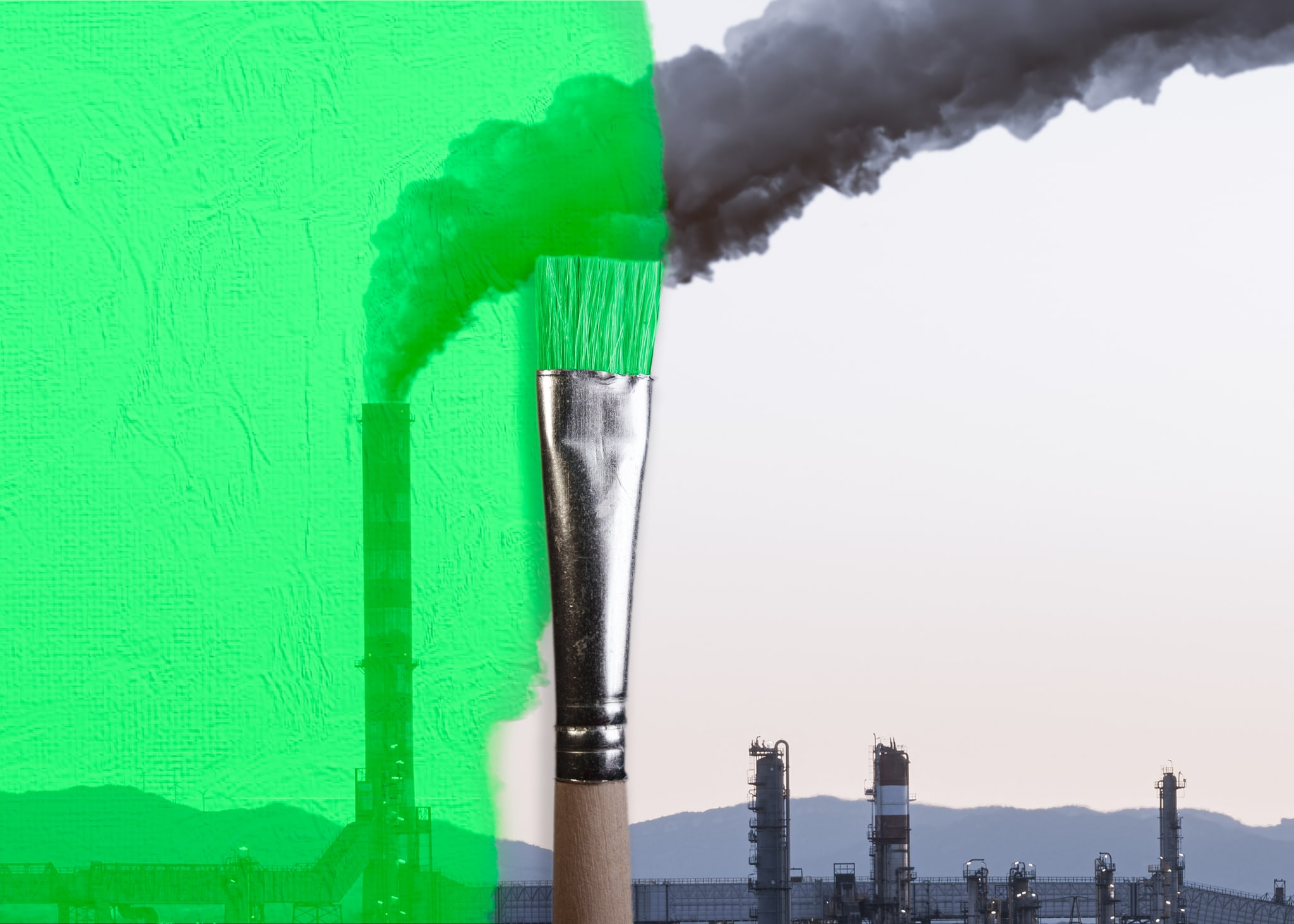About impact investing

Hi Daniel, you’ve been with World Fund since the very beginning and worked your way up to Head of Impact. What made you decide to work for World Fund and what exactly are your responsibilities as Head of Impact?
Before I started working at World Fund, I studied mathematics in Bonn and Berkeley. Quickly, I realized that the sometimes very abstract mathematical theories I dealt with in my studies did not provide any immediate added value for society outside the mathematical community.
During my studies, I came across the movement of effective altruism. Effective altruists strive to achieve as much of a positive impact on society as possible – quantitatively speaking – with the money and resources at their disposal. Since I was fascinated by the concept of effective altruism and at the same time very enthusiastic about start-ups, the idea came up to put my scientific know-how to good use: I wanted to help startups, organizations and venture capitalists invest their money in a meaningful way, not only in terms of return maximization, but also of a positive impact on society. After a few projects in this area, I eventually joined the World Fund founding team.
The principles of effective altruism are also reflected in my responsibilities as Head of Impact: one of my most crucial tasks is to develop scientific approaches for the identification of promising technologies when it comes to combating climate change. During our investment period, we want to stand by our portfolio companies in order to allow them to expand and scale their positive impact. I believe that the coming economic transformation will see both winners and losers. It is my task to scientifically assess different decarbonization technologies for the purpose of determining which start-ups will emerge as winners from the transformation process.
We consider ourselves pioneers that shape the way we deal with the topic of impact. More specifically, our goal is to promote innovative technologies that help decarbonize our world and thus make it more sustainable. The combination of financial expertise and science is at the core of how we aim to foster long-term, positive change. To reconcile these very different worlds, we want and need to build a diverse team.
So, at the core, what is most important to you is to generate impact. Impact, however, is a broad and rather subjective term. How does World Fund define it?
The way we primarily understand it, the term “impact” denotes anything that contributes to a livable future in the face of the climate crisis, which we consider the greatest challenge humanity is currently facing. Our main focus is on the potential of technologies to reduce emissions, which we regard as one of the biggest levers for combating climate change. We assess new technologies to quantify and validate their emissions reduction potential in a meaningful and scientifically sound manner. By making targeted investments in start-ups whose products have the potential to reduce greenhouse gas emissions to a particularly large extent, we aim to drive the transformation towards a climate-neutral economy. To this end, we developed our own specific methodology that allows us to evaluate the different technologies in a quantifiable way in order to compare them with each other.
We also take into account other sustainability and social dimensions, such as biodiversity or the working conditions at suppliers and business partners. Alas, such aspects are a lot more difficult to quantify. They are, however, taken into consideration at a qualitative level.
World Fund’s investment approach
World Fund does not invest sector-agnostically, but focuses specifically on climate tech companies from certain sectors (e.g. energy, construction and food). In your personal view, what is currently the most promising technology for saving CO2 emissions in the future?
The way I see it, there is an extreme variety of exciting and innovative technologies on the market that have the potential to reduce CO2 emissions. There is, for example, a very promising approach to the production of cocoa butter and cocoa powder based on microbes. Crop plants such as cocoa can usually only be grown in certain parts of the world, namely the regions where rainforests thrive. To cover the mass market demand for cocoa, large areas of rainforest are cut down and enormous amounts of carbon dioxide are emitted, which further exacerbates climate change. One of our start-ups uses a novel method of fermenting plant ingredients using microbes to recreate the flavors and fats of cocoa in a natural way. This means that certain food ingredients can be produced locally and sustainably without destroying sensitive biotopes such as rainforests.
Another promising area is the reduction of food waste. About one-third of the food we produce goes to waste before it can be consumed. The production of these foods accounts for an enormous share of global greenhouse gas emissions. Therefore, we have invested in a technological solution that uses artificial intelligence to improve predictions of food demand in the supply chain to reduce food waste.
The above examples provide economic value while making a positive contribution to climate protection. Technologies like those are precisely what we look for to invest in. Clearly, economic value can be created by making a positive impact on the environment, especially in times of crisis.
Measurement of the Climate Performance Potential (CPP)
World Fund only invests in technologies with a high potential of reducing carbon emissions. To quantify this potential, you have developed your own metric – the Climate Performance Potential (CPP). Can you explain how a technology’s CPP is measured and what it is used for?
As part of our commercial due diligence, we analyze the emissions reduction potential of the companies we consider investing in. The objective of this analysis is to evaluate how much CO2 the developed technologies could avoid until 2040. We developed the underlying methodology in collaboration with our scientific advisory board and selected industry partners.
The first step of our assessment is to determine how a technology contributes to decarbonization and what CO2 savings potential it offers compared to the status quo, i.e. existing technologies or processes. As a reference value, we also determine the emissions intensity of the market we would expect without the introduction of the new technology. In addition to that, we calculate the market penetration that the new technology or product can realistically achieve. From all these parameters and additional framework components, we finally derive the technology’s Climate Performance Potential. In summary, our analyses are based on a wide range of different aspects that are evaluated through scientific methods. They are carefully coordinated with the scientific advisory board and our network of experts. This process allows us to make targeted investments in companies that (will) contribute significantly to decarbonization and climate transformation.
Reducing CO2 emissions and combating climate change are, without question, honorable goals. However, at the end of the day, what your investors aim for is certainly an attractive return. Suppose you had to choose between two technologies in the investment process. According to your analysis, the first technology has the potential to become very profitable. A second technology would be less profitable, but would reduce CO2 emissions to a significantly larger extent. What would you do in such a conflict?
As part of our investment process, we generally analyze both the economic potential of the companies and their impact potential. Only if both aspects are sufficiently fulfilled, we consider an investment. It is important to identify which technologies have what it takes to come out on top and make a significant contribution to decarbonization – profitability is an important indicator in that regard.
At World Fund, we favor transformative, disruptive technologies that can become next-generation market leaders over transitional technologies or hybrid approaches. At the end of the day, the aim of the fund is to invest in the companies with the greatest impact potential. So, the technology that is less profitable in the medium term might have a big disruptive potential, while the alternative that is more profitable in the short term would only be suitable as a transitional technology. In that case, we would probably go for the first option.
BankingHub-Newsletter
Analyses, articles and interviews about trends & innovation in banking delivered right to your inbox every 2-3 weeks
"(Required)" indicates required fields
European framework conditions
In your opinion, how sufficient are the EU’s efforts in terms of sustainability (e.g. the Sustainable Finance Disclosure Regulation and the EU taxonomy)? To what extent does World Fund take these regulatory requirements into account?
The EU’s sustainability efforts are very interesting and represent a fundamental shift or change of the general framework in the financial industry.
Regulation plays a particularly important role when it comes to the prevention of greenwashing, thereby making investments more secure. At World Fund, we appreciate the measures taken by the EU and have classified our own fund under Article 9 of the SFDR. Nevertheless, the regulatory framework also presents us with some challenges, as young, fast-growing companies or innovative technologies aren’t optimally suited (or even able) to fulfill some aspects of the taxonomy. The taxonomy comes with many burdensome reporting requirements that demand a great deal of start-ups. The bottom line is that there is a certain “mismatch” in terms of regulatory requirements and alternative investment vehicles such as VC funds.
However, we do not limit our sustainability efforts to the EU’s existing regulatory requirements. In collaboration with other top companies in the VC industry, we launched the Venture Climate Alliance (VCA). The Venture Climate Alliance is an organization dedicated to defining, facilitating and realizing net-zero projects, with a focus on venture capital.
ESG integration in the investment process
The companies you invest in are working on products that may one day reduce large amounts of CO2 emissions. But what role does ESG integration play in the day-to-day operations and the governance of your portfolio companies? To put it somewhat luridly: are they all dedicated to developing carbon neutral meat substitutes, but flying their employees to Mallorca for a company outing?
We analyze the ESG performance of our portfolio companies on an annual basis and then work with them on defining an ESG action plan with appropriate initiatives to further advance ESG integration. This includes topics such as diversity and inclusion that can and should be addressed at an early stage of a company’s development. The goal is for our portfolio companies to make continuous progress in terms of their ESG values during their holding period, as we believe this will ultimately increase their exit proceeds and thus our fund’s performance.
However, our start-ups are very eager of their own accord to actively position themselves in terms of ESG, anyway. Ultimately, though, we want them to focus primarily on scaling the impact of their products, which increases exponentially for VC-funded startups. To stick with your example: to us, the successful carbon neutral production of meat would be way more important than small-scale ESG measures such as replacing the conventional light-bulbs in a start-up’s office with energy-saving alternatives.
Keyword “green bubble”?
At the beginning of the 21st century, major investments were made into renewable energy sources such as hydropower, wind power, solar thermal and geothermal energy. Between 2005 and 2007, there was already a smaller “green bubble”, which came to an end due to the 2007 recession. In your opinion, what is the likelihood of a second “green bubble”? Is there a risk that many of the projects on the market today will fail if interest rates continue to rise?
The venture capital market did plummet last year. The main reasons for the slump are the worsening of interest rates due to the inflation and the war-related increase in economic uncertainty. However, the way we see it, there is currently no “green bubble”. On the contrary, climate tech has proven to be particularly resilient during the crisis, and we see this both in our portfolio and in our deal flow: demand for products and services that contribute to climate transformation remains high. Our start-ups offer real intrinsic value, especially in times of high energy prices, which is why we believe that there is no danger of a bubble in that area. We therefore see the current market correction as an opportunity to invest in promising companies at more favorable conditions.
Sustainability in the private equity and infrastructure sector
The topic of sustainability has long since reached the public markets. What about the private markets, especially the VC market?
Impact investing has become a growing trend in recent years. This is reflected not least by the steadily increasing number of impact investors on the market. Particularly in the private equity and infrastructure sectors, the number of market participants with a focus on renewable energies and sustainable business solutions is increasing. However, they cannot finance new types of infrastructure projects, since those are too risky. This constitutes a big gap in the venture capital market.
Unfortunately, there are far too few funds like the World Fund I that are committed to financing young hardware-heavy companies and thereby develop the risk profile for the interested “larger asset classes”. In Europe, there is a lack of dedicated capital for this type of investment, and the World Fund I remains one of the few VC funds active in this area.
Germany as an investment location
How do you rate Germany as an investment location compared to other locations such as the USA? Are there any innovative German start-ups or is the country being outperformed by other countries in that regard?
At World Fund, we focus in particular on the pan-European perspective and our potential for global solutions. In discussions about Germany, we often hear from investors such as family offices that the high bureaucratic hurdles in Germany are detrimental to entrepreneurship, which in turn is reportedly reflected in geographic allocation decisions. Nevertheless, Germany is a strong technology hub, especially in terms of research and development, and engineering expertise. Specifically, Munich has a thriving and innovative start-up scene in the climate tech sector. This is, in particular, thanks to the many successful companies of the last few years such as Celonis, N26 or Personio that have generated a great deal of entrepreneurial expertise and experience, which in turn strengthens the entire ecosystem.
To sum it up, Germany definitely has the potential to become a market leader in terms of climate technologies. For one thing, Germany has the regulatory ambition it needs to promote climate protection. For another, the country possesses the necessary scientific expertise from years of research that other parts of the world are lacking.







